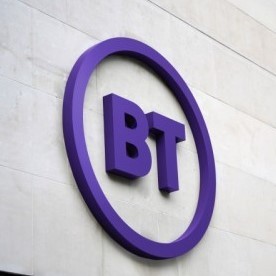Eurobites: BT, Toshiba trial 'quantum-secured' metro network
Also in today's EMEA regional roundup: the benefits of IP network automation; IPO news from Africa; Proximus gets into digital banking.

Also in today's EMEA regional roundup: the benefits of IP network automation; IPO news from Africa; Proximus gets into digital banking.
BT and Toshiba have embarked on a trial of what they claim is the world's first commercially available "quantum-secured" metro network, connecting sites in London's Docklands, City district and M4 corridor. The network will aim to provide data services made safe using quantum key distribution (QKD) and post-quantum cryptography (PQC) technology and delivered over BT-owned Openreach's Optical Spectrum Access Filter Connect (OSA FC) offering for private fiber networks. According to BT, estimates suggest that quantum-computer-enabled security attacks are possible within five years.
An Analysys Mason study commissioned by Nokia concludes that operators can expect to save up to 65% on costs by implementing IP network automation. Analysys Mason interviewed a group of global operators about their network automation strategies and results, collecting more than 60 data points. The analysts then extrapolated the benefits that can be expected from going down the automation route.
MTN Uganda is going ahead with an initial public offering (IPO), announcing its intention to float 20% of its shares on the Uganda Securities Exchange.
And, in related news, MTN-owned IHS Towers has begun marketing its IPO of 22,500,000 ordinary shares. IHS Towers operates more than 30,000 towers across Africa, the Middle East and Latin America.
Belgium's Proximus is launching Banx, a digital banking platform which, says the operator, allows users to monitor the impact of their purchases on the planet, thereby encouraging more "sustainable" choices. The platform is also linked to a CO2 dashboard developed by Swedish company Doconomy; this allows Banx customers to see their ecological footprint expressed in kilograms of CO2.
Olivetti, which these days is Telecom Italia's IoT arm, has agreed to acquire Rome-based Staer Sistemi, a system integrator and product developer in the IoT sector. Financial details of the deal have not been disclosed.
Greece's Intracom Telecom has teamed up with Ecomaks Solutions for a smart-city project in Belgrade, Serbia. The hope is that Intracom's data acquisition and modeling tools will help reduce air pollution, using a network of air-quality monitoring stations spread across the city.
As if Facebook didn't have enough on its plate at the moment, Reuters reports that the social media giant could still face a substantial fine at the hands of Russia's communications regulator for failing to delete banned content quickly enough. Last week the regulator, Roskomnadzor, threatened to whack Facebook with a fine of up to 10% of its annual Russian turnover unless it got rid of the offending content, which included posts containing child pornography and extremist content.
— Paul Rainford, Assistant Editor, Europe, Light Reading
Read more about:
EuropeAbout the Author(s)
You May Also Like




_International_Software_Products.jpeg?width=300&auto=webp&quality=80&disable=upscale)







